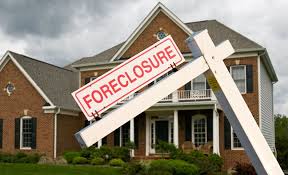
Breaking News
 In a jaw-dropping revelation, Sec. Brooke Rollins found 5,000 DEAD PEOPLE getting SNAP,...
In a jaw-dropping revelation, Sec. Brooke Rollins found 5,000 DEAD PEOPLE getting SNAP,...
 ALERT: The Most Important Silver Update You'll See - Mike Maloney w/Alan Hibbard
ALERT: The Most Important Silver Update You'll See - Mike Maloney w/Alan Hibbard
 Interview 1987 – News You WON'T See On The BBC! (NWNW #609)
Interview 1987 – News You WON'T See On The BBC! (NWNW #609)
 Foreclosures & Evictions Are Increasing Every Single Month
Foreclosures & Evictions Are Increasing Every Single Month
Top Tech News
 Blue Origin New Glenn 2 Next Launch and How Many Launches in 2026 and 2027
Blue Origin New Glenn 2 Next Launch and How Many Launches in 2026 and 2027
 China's thorium reactor aims to fuse power and parity
China's thorium reactor aims to fuse power and parity
 Ancient way to create penicillin, a medicine from ancient era
Ancient way to create penicillin, a medicine from ancient era
 Goodbye, Cavities? Scientists Just Found a Way to Regrow Tooth Enamel
Goodbye, Cavities? Scientists Just Found a Way to Regrow Tooth Enamel
 Scientists Say They've Figured Out How to Transcribe Your Thoughts From an MRI Scan
Scientists Say They've Figured Out How to Transcribe Your Thoughts From an MRI Scan
 SanDisk stuffed 1 TB of storage into the smallest Type-C thumb drive ever
SanDisk stuffed 1 TB of storage into the smallest Type-C thumb drive ever
 Calling Dr. Grok. Can AI Do Better than Your Primary Physician?
Calling Dr. Grok. Can AI Do Better than Your Primary Physician?
 HUGE 32kWh LiFePO4 DIY Battery w/ 628Ah Cells! 90 Minute Build
HUGE 32kWh LiFePO4 DIY Battery w/ 628Ah Cells! 90 Minute Build
 What Has Bitcoin Become 17 Years After Satoshi Nakamoto Published The Whitepaper?
What Has Bitcoin Become 17 Years After Satoshi Nakamoto Published The Whitepaper?
Foreclosures & Evictions Are Increasing Every Single Month

It's a question that a lot more people are asking this year. The number of foreclosures in America has climbed for eight months straight as of October, and evictions also appear to be on the rise, though this number is harder to track. It's not about laziness – many of the people who face losing their homes are employed and just struggling to keep their heads above water.
The way foreclosure or eviction happens to people is so easy, it's scary.
Foreclosure can happen to nearly anyone.
According to a report on CBS News, most foreclosures are for one simple reason: the homeowner loses all or part of their income.
Roughly 94% of mortgage defaults occur after a homeowner loses income to extenuating circumstances, according to The Urban Institute, citing data from the National Bureau of Economic Research.
Todd Teta, chief product and technology officer at ATTOM, a real estate data company, says we're about to face another problem that could end in a new rash of foreclosures. People with variable interest rates are about to see their payments go up.
A high-interest-rate environment can be particularly challenging for homeowners with variable-rate loans, which reset at certain intervals in part based on market conditions. That means a homeowner might see a major jump in their monthly mortgage payment if their reset occurs when interest rates are elevated.
More such loans are now hitting their reset periods, Teta noted, a trend he expects to continue. "While there has been a small dip in interest rates, they remain significantly higher than just a few years ago, so borrowers with upcoming resets are still likely to see sizable payment increases."
You are supposed to receive notice that your mortgage is falling into default, but more and more people are saying that they are getting very little notice to vacate their homes – sometimes only a few days.

 Unbanked In A Connected World
Unbanked In A Connected World

